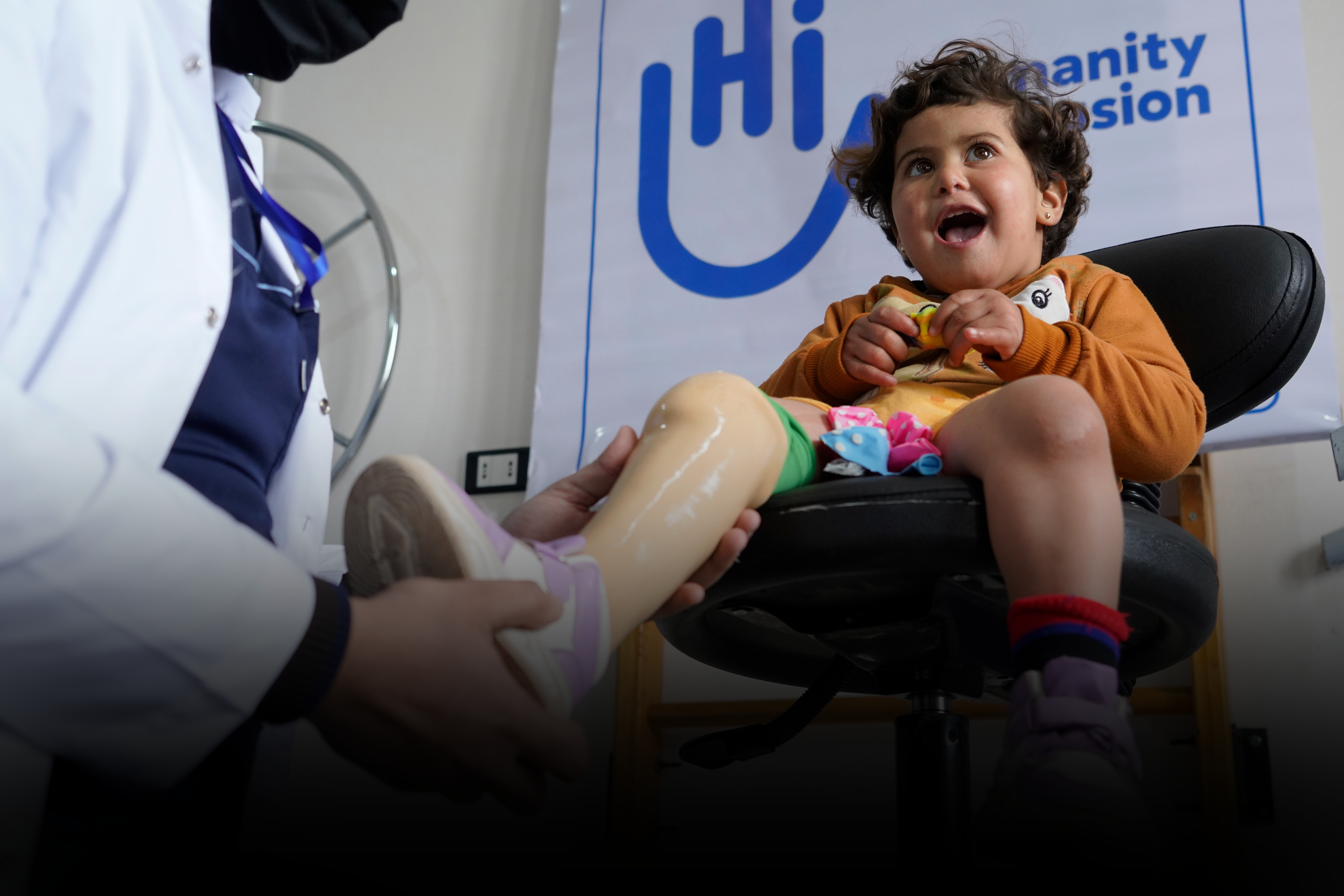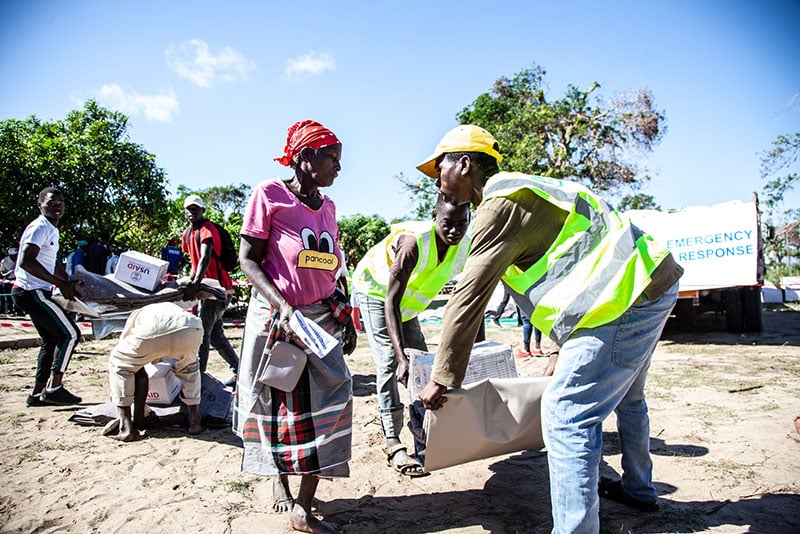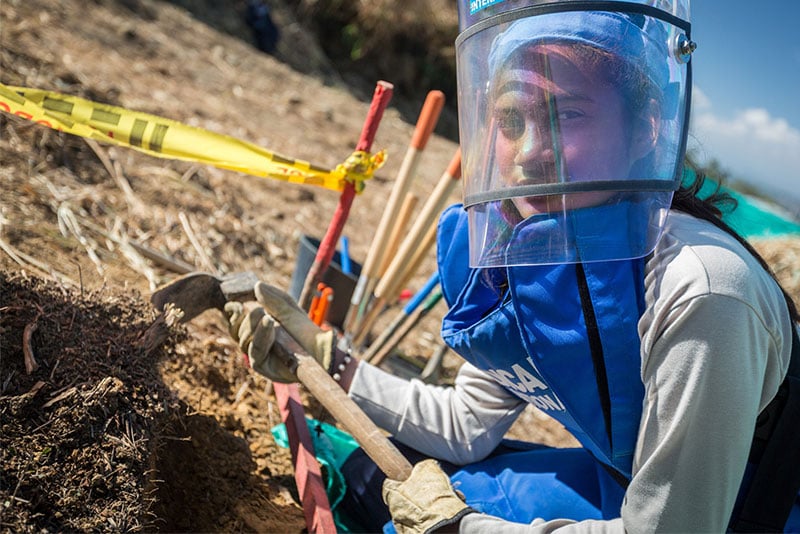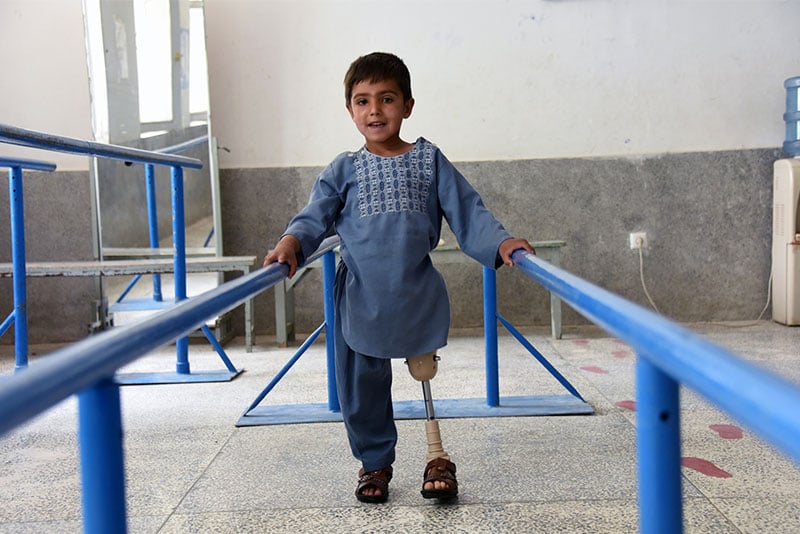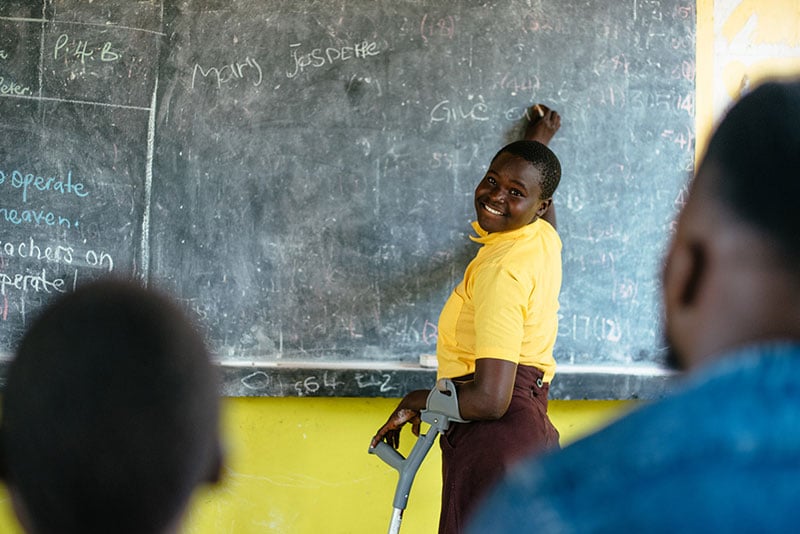Humanity & Inclusion (HI) works alongside people with disabilities and individuals living in situations of poverty and exclusion, conflict and disaster.
HOW YOU CAN HELP
Partner with us
OUR GLOBAL IMPACT
3
million
people directly supported in 2024
58
countries
480
projects




Co-winner of the Nobel Peace Prize 1997
for our work towards banning and clearing anti-personnel landmines
WHAT WE DO
Since HI was founded in 1982, we have supported tens of millions of people in over 60 countries. Our teams work tirelessly to support those most in need in humanitarian emergencies, chronic crises, and long-term development.
Emergencies
HI’s emergency teams take action on the ground to assist those most in need - particularly people with disabilities, those who've been injured, and displaced people. We work to ensure that no one is left behind in a humanitarian crisis.
Explosive weapons
HI has a comprehensive approach to mine action, working to protect civilians, support the victims of conflict, and campaign for change. We clear explosive remnants of war, educate communities about the risks, and help survivors back into society.
Rehabilitation
HI teams provide life-changing rehabilitation, prosthetic limbs, wheelchairs, and other aids to injured individuals and people with disabilities. We campaign for rehabilitation to be integrated into health systems worldwide.
Disability
HI works with people with disabilities, their families, communities, and a range of organizations to ensure that people with disabilities have opportunities and rights in education, employment, healthcare, and beyond.
Read more

Roshida’s Long Road to Recovery in the Rohingya Camps
Roshida, a Rohingya refugee, lost her independence after a stroke left half her body paralyzed. With sustained rehabilitation and mental health support from Humanity & Inclusion, she began to recover. Today, she is regaining strength, hope, and joy with her family.

Walking Into Danger: Mine Clearance in Iraq
Roger Eid, head of the HI’s clearance in Iraq, tells how locals have become used to explosive remnants and put themselves in danger. To clear land is the only solution.

Healing from accidental gunshot wound, Hazrat eager to play soccer again
To improve access to healthcare after the August 2025 earthquake in Afghanistan, HI deployed its emergency response teams with the support of the European Union as patients were flooding into Jalalabad hospital. There, HI's specialists treated patients injured in the disaster and those with unrelated needs.


